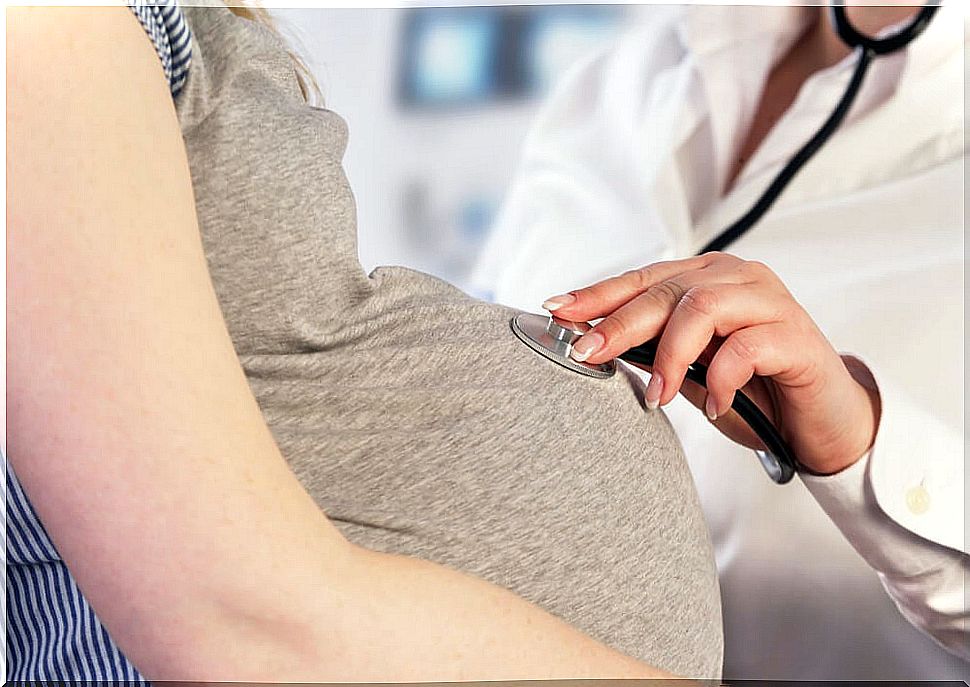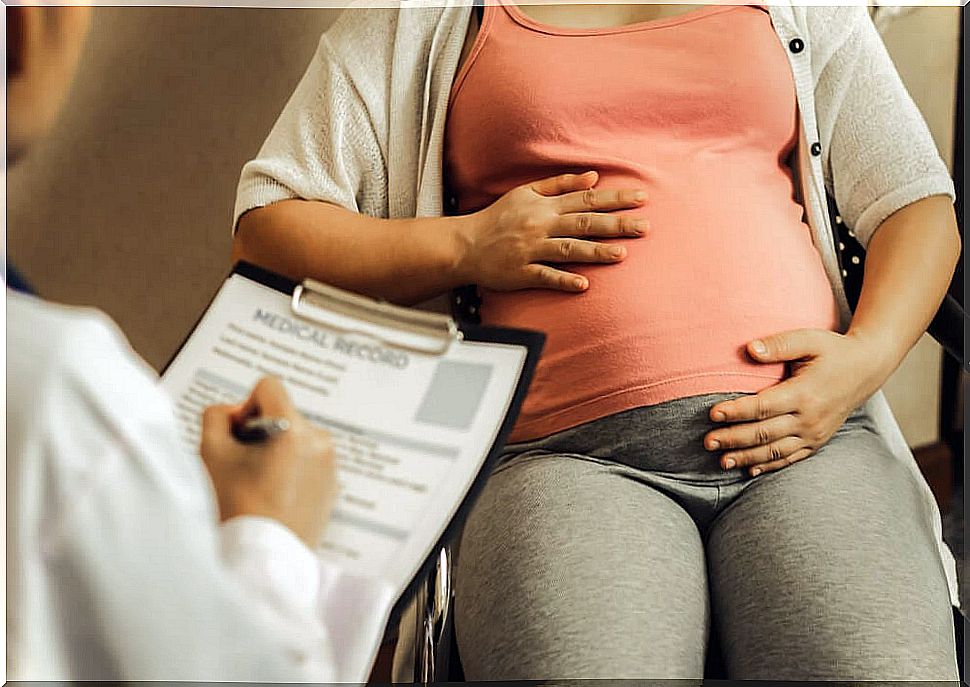Dietary Treatment Of Ramps In Pregnancy

Ramps are involuntary muscle contractions, painful and of short duration. They are usually frequent in athletes and during the third trimester of pregnancy. They affect 30-50% of pregnant women. Since they affect the performance of daily activities and alter sleep (they usually occur at night), we are going to reveal to you what is the dietary treatment of ramps in pregnancy.
First of all, you should know the reasons why they occur. They appear for different causes, although the main ones are electrolyte imbalance (sodium, potassium, magnesium and calcium), dehydration, prolonged exercise without rest or maintaining a specific position for a long time. Also due to the lack of vitamins involved in maintaining good muscle tone.
Dietary treatment of ramps in pregnancy
Taking into account the above, the diet is focused on meeting the requirements of the nutrients whose levels are low. Depending on the case, the prescription of an oral supplement may be considered.
Normally, this decrease occurs because the needs are greater and are not met, due to the presence of continuous nausea or vomiting, sweating or hypertension (better known as pre-eclampsia).

Potassium
It is a mineral involved in nerve transmission between cells and muscle contraction. Until now, it has been the protagonist in the appearance of ramps, especially in sports people. However, it has been observed that some people have blood levels within the normal range. This was a breakthrough, since they realized that it was not the only predisposing factor.
In addition, it is not recommended to supplement it, since the needs can be met through food. It is found in green leafy vegetables (chard, spinach, celery), legumes, fruits (especially bananas, melons and currants), dehydrated fruits, such as dried apricots and figs; avocado and nuts, such as almonds and hazelnuts.
Magnesium, the great forgotten in the dietary treatment of ramps in pregnancy
It also acts on muscle contraction and, in addition, it is the most studied in pregnant women. The only limitation is that the doses, type of supplement, and duration differ between studies. But these issues have not prevented showing that it does help reduce the frequency and severity of ramps. Some did not even measure serum levels at any time.
On the one hand, the administration of 300 mg of magnesium citrate for a month produced an improvement of 27.2% compared to the control group. On the contrary, other investigations did not find significant differences. On the other hand, chelated bisglycinate turns out to be more effective at the same dose and duration, since it is absorbed about 2.2 times better than magnesium lactate and citrate.
The fact that supplementation helps fight cramps keeps eating key. It is always necessary to assess the degree of stress and have a blood test. Foods rich in magnesium include green leafy vegetables, beans, soybeans, and nuts.

Sodium
Regarding sodium, it is in equilibrium with potassium. Physiologically, sodium predominates on the outside of the cell and potassium on the inside. When an imbalance occurs between any of these minerals, the risk of cramps increases. Most of the time it occurs due to sweating and incorrect replacement by drinks rich in electrolytes.
Calcium and vitamin D
Calcium supplementation, alone or together with vitamin D, has also been studied, since it is another of the minerals that participate in contraction. In addition, vitamin D promotes intestinal calcium absorption.
The results indicate that 300 mg of calcium bicarbonate and 1000 IU of vitamin D for 6 weeks had no effect. The reason was that the period was short and the dose low, thus requiring more studies at increased dose and follow-up.
Group B vitamins
As for the B vitamins, they help prevent fatigue caused by ramps. Keep in mind that the diet is enough to cover the recommended intakes because they are found in various foods such as meat, fish, vegetables, legumes and nuts.
About the dietary treatment of ramps in pregnancy
As you have seen in the previous information, ramps in pregnancy are normal and can be avoided thanks to a correct dietary treatment. Sometimes it is even required to supplement with magnesium under the supervision of a qualified healthcare professional.










